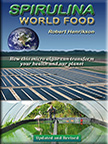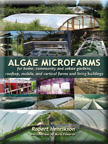by Mohammad Reza Aghasadeghi et al. Pub. in Frontiers in Immunology. (2024) 08 April 2024. DOI 10.3389/fimmu.2024.1332425.
Objective: Spirulina (arthrospira platensis) is a cyanobacterium proven to have anti-inflammatory, antiviral, and antioxidant effects. However, the effect of high-dose Spirulina supplementation on hospitalized adults with COVID-19 is currently unclear. This study aimed to evaluate the efficacy and safety of high-dose Spirulina platensis for SARS-CoV-2 infection.
Study Design: We conducted a randomized, controlled, open-label trial involving 189 patients with COVID-19 who were randomly assigned in a 1:1 ratio to an experimental group that received 15.2g of Spirulina supplement plus standard treatment (44 non-intensive care unit (non-ICU) and 47 ICU), or to a control group that received standard treatment alone (46 non-ICU and 52 ICU). The study was conducted over six days. Immune mediators were monitored on days 1, 3, 5, and 7. The primary outcome of this study was mortality or hospital discharge within seven days, while theoverall dischargeor mortalitywas considered the secondary outcome.
Results: Within seven days, there were no deaths in the Spirulina group, while 15 deaths (15.3%) occurred in the control group. Moreover, within seven days, there was a greater number of patients discharged in the Spirulina group (97.7%) in non-ICU compared to the control group (39.1%) (HR, 6.52; 95% CI, 3.50 to 12.17). Overall mortality was higher in the control group (8.7% non-ICU, 28.8% ICU) compared to the Spirulina group (non-ICU HR, 0.13; 95% CI, 0.02 to 0.97; ICU, HR, 0.16; 95% CI, 0.05 to 0.48). In non-ICU, patients who received Spirulina showed a significant reduction in the levels of IL-6, TNF-a, IL-10, and IP-10 as intervention time increased. Furthermore, in ICU, patients who received Spirulina showed a significant decrease in the levels of MIP-1a and IL-6. IFN-g levels were significantly higher in the intervention group in both ICU and non-ICU subgroups as intervention time increased. No side effects related to Spirulina supplements were observed during the trial.
Conclusion: High-dose Spirulina supplements coupled with the standard treatment of COVID-19 may improve recovery and remarkably reduce mortality in hospitalized patients with COVID-19.




